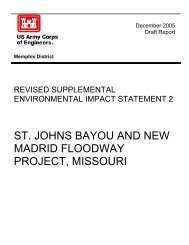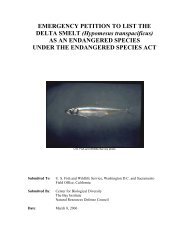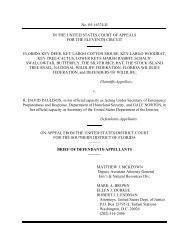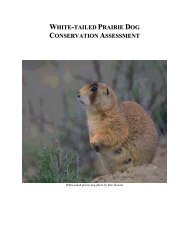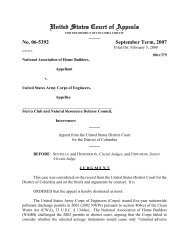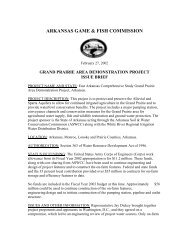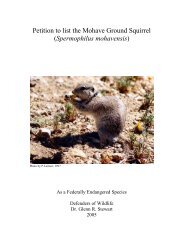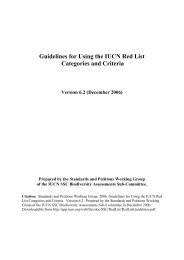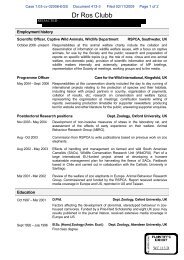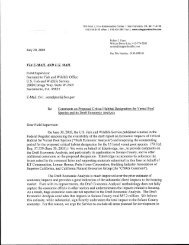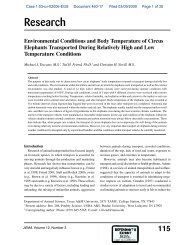Brief Amicus Curiae Of Montana Wilderness Association In Support ...
Brief Amicus Curiae Of Montana Wilderness Association In Support ...
Brief Amicus Curiae Of Montana Wilderness Association In Support ...
You also want an ePaper? Increase the reach of your titles
YUMPU automatically turns print PDFs into web optimized ePapers that Google loves.
19<br />
<strong>Wilderness</strong> Preservation System has been diminished since<br />
1977.” Id. The Court carefully avoided intruding upon the<br />
Forest Service’s day-to-day management of the WSAs.<br />
The Forest Service appealed on the ground that the<br />
District Court lacked subject matter jurisdiction. Judge<br />
Trott, writing for a unanimous court, first held that the trail<br />
maintenance and improvement work in Counts III and VI did<br />
not constitute final agency action subject to review under<br />
§706(2). <strong>Montana</strong> <strong>Wilderness</strong> <strong>Association</strong>, <strong>In</strong>c. v. U.S.<br />
Forest Service, 314 F.3d 1146, 1150 (9th Cir. 2003) (holding<br />
that routine maintenance work was not “final” action (citing<br />
Bennett v. Spear, 520 U.S. 154, 177 (1997)), and that trail<br />
maintenance does not fit into the statutorily defined<br />
categories for “agency action” (citing Lujan v. National<br />
Wildlife Federation, 497 U.S. 871, 899 (1990) and 5 U.S.C.<br />
§551(13)). Thus, it reversed the District Court judgment on<br />
Counts III and VI. Second, the Court of Appeals held that<br />
the District Court would have subject matter jurisdiction<br />
over Count I if plaintiffs made a showing of “‘agency<br />
recalcitrance . . . in the face of clear statutory duty or . . . of<br />
such magnitude that it amounts to an abdication of statutory<br />
responsibility.’” 314 F.3d at 1150 (quoting ONRC Action v.<br />
Bureau of Land Management, 150 F.3d 1132, 1137 (9th Cir.<br />
1998)). It rejected the Forest Service’s argument that its<br />
statutory duties were discretionary, holding that the statutory<br />
duty to maintain the WSAs was a nondiscretionary,<br />
mandatory duty that the Forest Service could be compelled<br />
to carry out under §706(1). Id. at 1151 (“the Act does more<br />
than provide a mere policy statement or general guidance; it<br />
establishes a management directive requiring the Forest<br />
Service to administer the Study Areas to ‘maintain’<br />
wilderness character and potential for inclusion in the<br />
<strong>Wilderness</strong> System”). The Ninth Circuit concluded,<br />
however, that because the Forest Service had presented some<br />
evidence that it had maintained the wilderness character of<br />
the WSAs, thereby creating a genuine issue of material fact,




